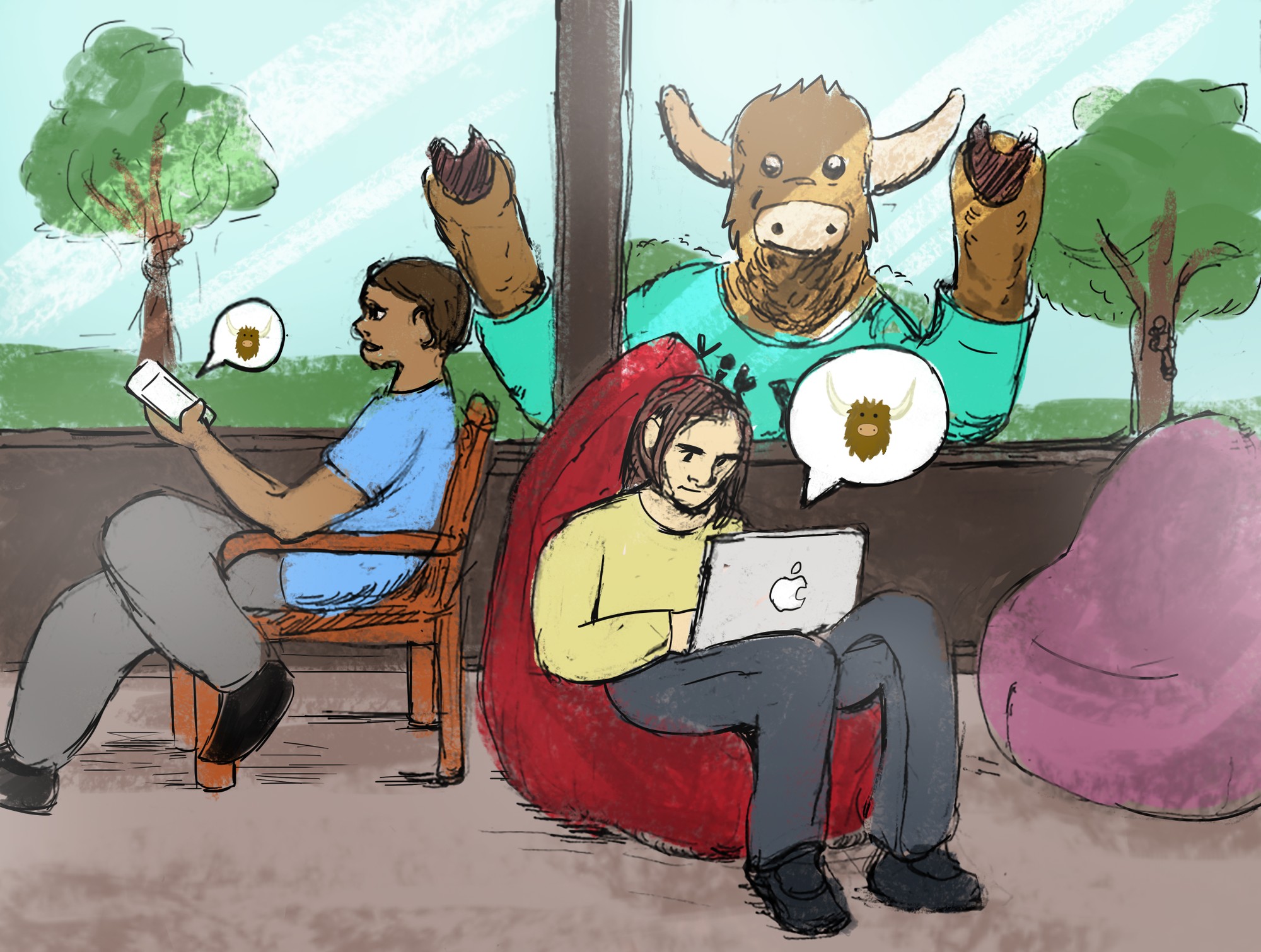Catherine Liberty Feliciano: UCLA should not ban, but regulate Yik Yak

(Josh Greenberg/ Daily Bruin)
By Catherine Liberty Feliciano
Oct. 28, 2015 11:52 p.m.
Everything is forever on the Internet now. Bylines, twitter handles and never-ending archives hold us accountable for everything we’ve ever dared to publish. Yik Yak is a different story – temporary, anonymous and a matter of controversy.
Several feminist and civil rights organizations sent a letter to the U.S. Department of Education’s Office for Civil Rights last week asking the office to respond to a trend of race- and gender-based harassment on Yik Yak and other platforms that facilitate anonymous speech. The letter offered a list of solutions – including investigating anonymous harassment, banning applications that host it and providing resources to those affected – to the deluge of anonymous hate speech.
Since then, several people have come to Yik Yak’s defense, submitting valid claims that the platform allows minorities’ voices to be heard and students to support each other in dire situations. Other claims, including one that reasons students’ anonymous hate speech is an expression of their discontentment being students, reveal how absurdly little some people understand how much caution students can throw to the wind when allowed anonymity.
The conversation about whether we should be policing anonymous speech pertains to all college campuses and, at UCLA, you don’t need to look far to see why restricting anonymous speech is not only futile, but dangerous.
While many of the letter’s demands are understandable, particularly since it’s the universities’ duty to prevent and address hate speech that should extend to anonymous online comments, its call for college campuses to essentially ban anonymous social networks with the potential for harassment misunderstands the place of anonymous speech on college campuses.
Banning spaces that facilitate anonymous speech is eliminating an entire medium through which our campus community communicates. These spaces should be monitored, but their existence is paramount to free speech on campus. Without anonymous speech, students’ only outlet for discussion would be those attached to their identities.
The letter’s suggestion that colleges ban these applications from being used on their Wi-Fi or within campus boundaries using geofencing methods to define an area where the app can’t be used is contrary to freedom of speech on college campuses and solves nothing, except maybe the superficial.
Yik Yak, though a facilitator of offenses, doesn’t produce them – the campus community does. Nor does it provide instances of support or analyses of on-campus behavior that are largely ignored by the media. Applications like Yik Yak, which extend service based on location, are a direct reflection of what our community believes.
And our community doesn’t believe just one thing. Earlier this year, stickers blaming Freddie Gray for his death at the hands of the police were left on newsstands in North Campus, and last month, the Racist Bruin covered the Daily Bruin’s front page on newsstands across campus, asking students to pay attention to administrative neglect. These examples, at polar ends of the conversation, and the lack of significant response illustrate how little regard these early expressions of discontent manifest on campus.
Other than an email sent a week after stickers were posted, the administration failed to acknowledge either event, even though both reflected hostile conditions on campus worthy of administrators’ attention. Tangible change at UCLA has only come in response to identifiable offenses, even though, as the letter states, anonymous speech can affect students’ mental health and ability to succeed in school.
In 2013, the Moreno report found that UCLA’s policies responding to claims of faculty discrimination were insufficient and contributed to a hostile campus climate. In response, the administration hired discrimination prevention officers, appointed “diversity specialists” and found its first vice chancellor for diversity, equity and inclusion, Jerry Kang.
More recently, a “Kanye Western” themed raid elicited a campuswide conversation about where to draw the line between celebrity mockery and cultural appropriation. The response was so strong from both those who criticized and defended partygoers that the administration was prompted to respond twice – first to the party and second to the Afrikan Student Union’s demands – to remind students it pays attention.
These incidents revealed ignorance deeply rooted in our campus climate that are more obviously prominent on Yik Yak, where anonymity exempts the need for civility. It’s true that the UCLA should start acknowledging messages published through Yik Yak, but restricting them is hardly the point.
Anonymous speech on Yik Yak is just as valid as anonymous speech posted on campus and no one should be regulating either, especially to the extent of banning it. The application itself has done its part to curb exceptional examples of harassment and hate speech, adding filters to prevent personal information from being posted and warning messages when buzzwords like “bomb” are typed. While it could do more to disavow vitriol than allowing users to down-vote offensive messages out of existence, the system is relatively effective.
Colleges don’t need to contribute more to the regulation of anonymous speech, though that isn’t to say they should ignore it. Anonymous conversations reflect the diversity of opinions on campus and recognizing their validity is the only way campuses can start to reverse the negative effects of hate speech that pervades college communities.
By threatening the freedom of any of these spaces, the letter’s proposed restrictions compromise the security of all of them. Applications like Yik Yak are essential, not only to ensure anonymous conversations can be conducted between students, but also to ensure they are heard.

